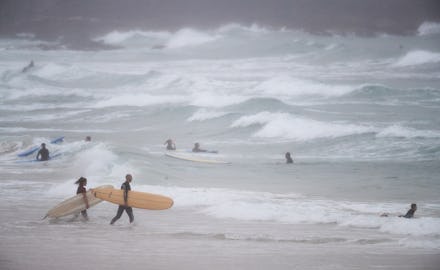Deadly Ocean Bacteria Is Making People Sick — And Humanity Just Might Be Responsible

Deadly bacteria levels are on the rise in the ocean and it could have something to do with a little-known phenomenon called global warming.
The findings, included in a report published this week in the journal Proceedings of the National Academy of Sciences of the United States of America, found that rising ocean temperatures are correlated with a spike in a marine bacteria called Vibrio. According to the study, the rising temperature is associated with an unprecedented rate of Vibrio infections in Northern Europe and the U.S. east coast.
The bacteria that causes vibriosis is responsible for 80,000 illnesses and 100 deaths annually in the U.S., according to the Centers for Disease Control and Prevention. Vibrio cholerae, one of the many Vibrio species, is the bacteria behind the diarrheal disease cholera, which is responsible for up to 142,000 deaths worldwide every year, the World Health Organization reported.
According to the study, when the surface temperature of a body of water rises, it's "strongly associated with spread of Vibrios."
"We were able to demonstrate that there was an increase in the numbers of Vibrios, probably a two- or threefold increase, correlated with the increase in climate temperature, and then correlated with outbreaks of Vibrio infections that have been recorded in the medical records," Rita Colwell, a University of Maryland microbiologist who co-authored the study, told the Washington Post.
The study looked specifically at samples taken out of parts of the Atlantic Ocean over the last 50 years. But as the planet continues to warm up, we could see more examples in wider swaths of oceans, with higher rates of marine pathogens making a home for themselves. And that's bad news for everyone.